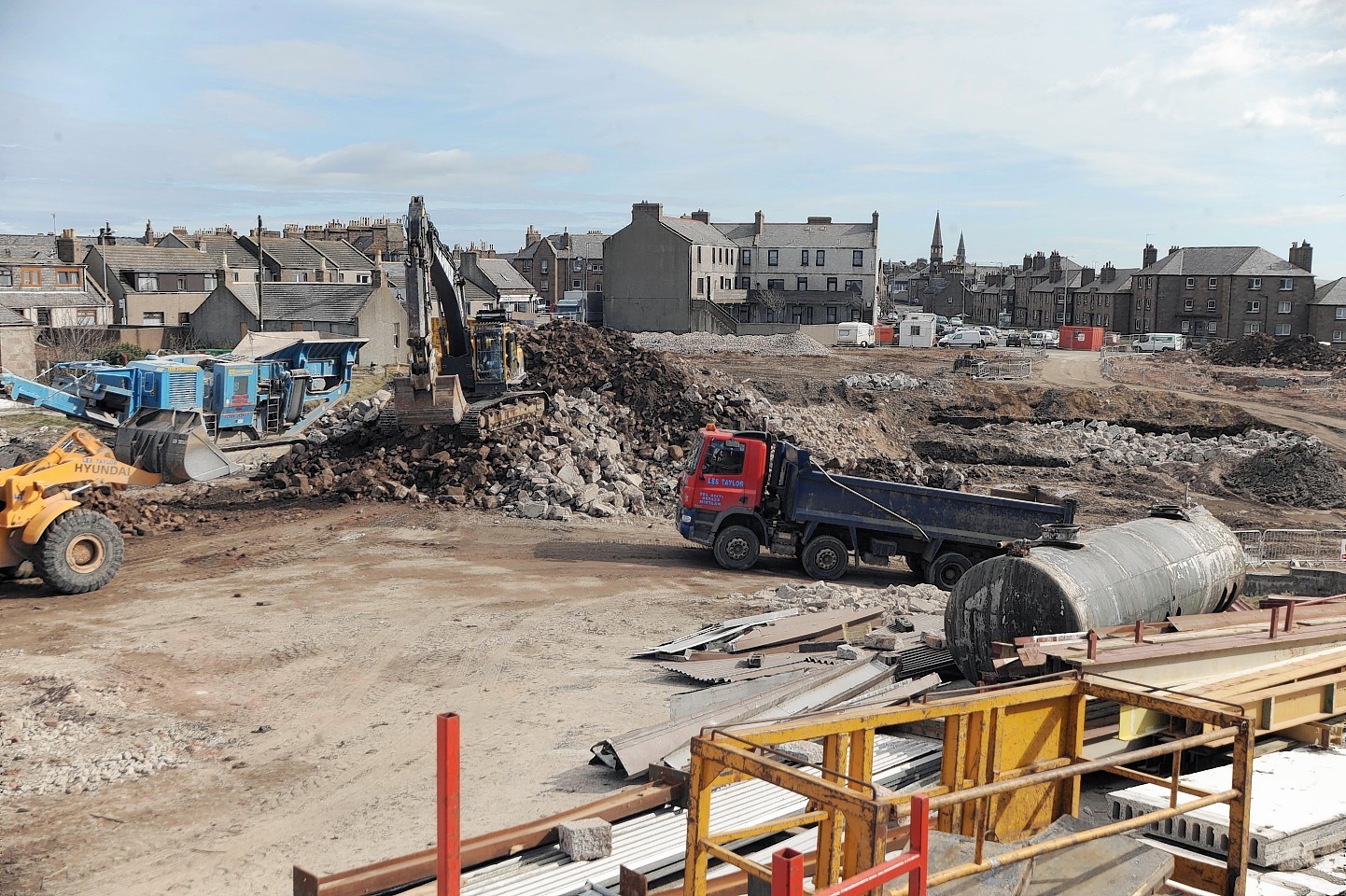A major retail development in the north-east’s largest town could be held up by the discovery of asbestos on the site.
German supermarket giant Aldi last month lodged their long-awaited plans to build a store in Peterhead, on the site of the former textile mill.
But now it has emerged the project could stall after an environmental assessment of the ground revealed the presence of hazardous asbestos.
Aldi and the local authority’s planning team are now in talks to establish the risk posed by the contamination and what “remediation measures” can be taken.
The findings of the environmental assessment have been published by Aldi.
“It is considered that made ground containing occasional dispersed asbestos fibres can be re-used on site subject to appropriate construction precautions such as control of dust generation,” the report states.
It is understood that the contaminated south-eastern area of the site on Peterhead’s South Road will be built up by around six feet during construction, effectively sealing the asbestos underground and preventing further risk to visitors to the site.
But the report adds: “Given that previous investigations commented on the potential presence of asbestos containing materials within demolition rubble in the south-east part of the site, the potential for unidentified asbestos below this area cannot be dismissed, although no visual evidence of such contamination was noted.”
The report stresses that Aldi will take all necessary measures to protect the health of workers and visitors to the site.
Aberdeenshire Council scientific officer Adam Ritchie analysed the developer’s findings and has recommended that no construction work of any kind begin until further investigations have been carried out.
Mr Ritchie also suggested that any remediation work done on the contaminated land must be complete before the store can be
opened.
Aldi did not confirm whether the discovery of contaminated ground at Kirkburn Mill would delay development of the land.
Asbestos was commonly used as a construction material right up until 2000. It is now know to cause a host of fatal lung conditions, including lung cancers and asbestosis.
Figures published by the Health and Safety Executive show that around 20 tradesman die each week as a result of past exposure to asbestos fibres disturbed during building work.
